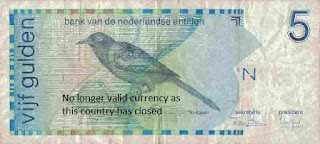In the old age black was not counted fair,
Or if it were, it bore not beauty's name;
But now is black beauty's successive heir,
And beauty slandered with a bastard shame:
For since each hand hath put on Nature's power,
Fairing the foul with Art's false borrowed face,
Sweet beauty hath no name, no holy bower,
But is profaned, if not lives in disgrace.
Therefore my mistress' eyes are raven black,
Her eyes so suited, and they mourners seem
At such who, not born fair, no beauty lack,
Sland'ring creation with a false esteem:
Yet so they mourn becoming of their woe,
That every tongue says beauty should look so.

With these lines, in Sonnet 127, does Shakespeare introduce one Lucy Negro, better known today as "The Dark Lady of the Sonnets", though at the time she was simply "Madam", or "Black Luce", an "arrant whore"' who ran a brothel in Clerkenwell, in north-east London. How did Shakespeare know her? The brothel was a tenancy in a house owned by Philip Henslowe, the man who built the Rose Theatre, and the brothel was probably the one known to have been located in the gardens behind "The Little Rose", a house he owned in Southwark, though that may have been the one run by Gilbert East, Lucy's business partner, and also a Henslowe tenant. Henslowe's theatre company was The Admiral's Men, who had originally been part of James Burbage's company, which included Shakespeare - the two parted company when Henslowe and Burbage argued over the division of the spoils, and Henslowe left. Anthony Burgess creates a fictional version of Lucy Negro in his novel "Nothing Like The Sun" (Harold Bloom's favourite Burgess novel apparently), but the truth is, nothing is known about her beyond what is recorded above, and it is pure speculation, mostly by Dr Duncan Salkeld of the University of Chichester, that she even was the Dark Lady of the Sonnets.
And what has any of this to do with the country of Montenegro? Absolutely nothing, but Montenegro turns out to be one of the world’s most uninteresting places to write about (though not to visit or spend time in - the Ostrog Monastery and Our Lady of the Rocks are two of the finest tourist-churches in the world), part of the horrible mess of Yugoslavia that includes Bosnia-Herzegovina, Croatia, Serbia, Macedonia, Kosovo et al, and so I thought I would share this with you instead. If you want to read about the mess, go to any of those other countries in this book, and you will find it there. "A complete Balkans", as somebody once said.
Montenegro is properly Crna Gora, and the name means “Black Mountain”; it was originally just a part of the Serbian province of Zeta, which became a state in its own right until the Ottomans swallowed up the whole region, allowing Montenegro a measure of autonomy under the rule of bishop-princes. It became a secular state in 1852, part of Yugoslavia in 1929, and finally sovereign in 2006, after a referendum in which barely fifty-five per cent of the population voted to become an independent country.
Marks for: 150
Marks against: Tito
Copyright © 2015 David Prashker
All rights reserved
The Argaman Press






